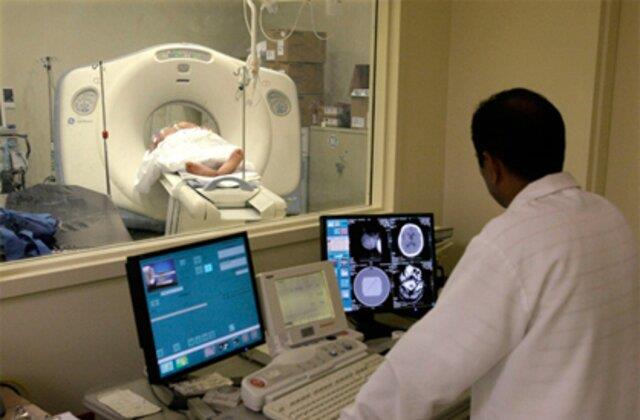Becoming a radiology tech can be a fantastic option if you’re interested in healthcare but don’t want to pursue a lengthy medical degree; becoming a technologist, also known as a radiology tech, plays a critical role in the medical field by helping doctors diagnose and treat patients using imaging technologies. This comprehensive guide will guide you through becoming a radiology tech, covering educational requirements, certification, skills, job prospects, and career advancement opportunities. Whether you’re a school student exploring healthcare careers or a working professional considering a career change, this guide will give you all the tools you need to succeed.
What Does a Radiology Tech Do?
Before diving into how to become a radiology tech, it’s essential to understand the role itself. A radiology tech operates imaging equipment, such as X-ray machines, CT scanners, and MRI machines, to help diagnose illnesses or injuries. They work closely with doctors, radiologists, and other healthcare professionals to produce precise, accurate images for diagnosis. Knowing the day-to-day responsibilities will give you a better idea of what it’s like to work as a radiology tech and help you decide whether this career is right for you.
Educational Requirements to Become a Radiology Tech
To know how to become a radiology tech, you need to start by meeting the educational requirements. Most radiology techs begin their careers with an associate degree in radiologic technology, typically taking about two years to complete. These programs are available at community colleges, technical schools, and universities and usually include classroom instruction and hands-on clinical experience.
Certifications and Licensing Requirements
Certifications are another critical factor in becoming a radiology tech. After completing your degree, you must obtain certification from the American Registry of Radiologic Technologists (ARRT). This involves passing a comprehensive exam that tests your knowledge of radiologic technology, patient care, safety measures, and more. Some states may require radiology techs to hold state-specific licenses and ARRT certification.
Skills You Need as a Radiology Tech
When figuring out how to become a radiology tech, it’s essential to recognize the critical skills that will make you successful in this career, aside from technical skills related to operating complex imaging equipment. As a radiology tech, you’ll interact with patients, explain procedures, and ensure their comfort and safety.
Choosing the Right Radiologic Technology Program
Choosing the right program is a pivotal step in becoming a radiology tech. As mentioned earlier, attending an accredited program that provides theoretical and practical training is essential. It would help if you also considered factors such as location, tuition costs, program duration, and clinical rotation opportunities when selecting a program.
Gaining Clinical Experience
Gaining hands-on experience is a critical part of how to become a radiology tech. Most educational programs include clinical rotations where students can work in hospitals, clinics, or imaging centers under the supervision of licensed radiology techs. These clinical experiences allow you to apply your theoretical knowledge, learn how to operate imaging equipment, and interact with actual patients.
Passing the ARRT Certification Exam
Once you’ve completed your educational program and clinical experience, the next major hurdle in becoming a radiology tech is passing the ARRT certification exam. The exam covers many topics, including patient care, radiation safety, image production, and equipment operation.
Job Outlook and Career Opportunities
Understanding the job outlook is an essential factor in deciding to become a radiology tech. According to the Bureau of Labor Statistics, the demand for radiology techs is expected to grow by 6% from 2021 to 2031. An aging population and advancements in medical imaging technology fuel this growth.
Advancing Your Career as a Radiology Tech
You may wonder about career advancement opportunities after learning how to become a radiology tech. You can specialize in mammography, bone densitometry, or nuclear medicine with additional certifications. Some radiology techs even pursue leadership roles, such as becoming a manager or department director.
Challenges and Rewards of Being a Radiology Tech
Knowing the role’s challenges is essential when figuring out how to become a radiolog’y tech. One challenge is the job’s physical demands, as radiology techs often stand for long periods and may need to assist patients with mobility issues. Another challenge is the emotional aspect, as you’ll be working with patients who may be in pain or distress.
Conclusion
Becoming a radiolog’y tech is a rewarding and fulfilling career choice that offers stability, growth opportunities, and the chance to impact patients’ lives, patients. You can successfully embark on this career path by following the necessary steps, including obtaining the proper education, gaining hands-on experience, and passing certification exams. Now that you understand how to become a radiolog’y tech, you’re on your way to a bright future in the healthcare industry.
FAQs
How long does it take to become a radiolog’y tech?
Completing an associate degree in radiologic technolog’y typically takes about two years, but some programs may take longer if you have a bachelor’s.
Is certification required to become a radiolog’y tech?
Yes, after completing your educational program, you must pass the ARRT certification exam to become a certified radiolog’y tech.
What skills are essential for a radiolog’y tech?
Technical skills for operating imaging equipment, strong communication, attention to detail, and time management skills are essential.
Can radiolog’y techs specialize in specific areas?
With additional certification and training, radiolog’y techs can specialize in areas such as MRI technolog’y, CT scanning, mammography, or radiation therapy.
What is the job outlook for radiolog’y techs?
The demand for radiolog’y techs is expected to grow by 6% from 2021 to 2031, providing good job security and career prospects.

